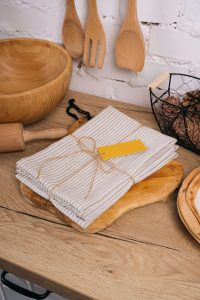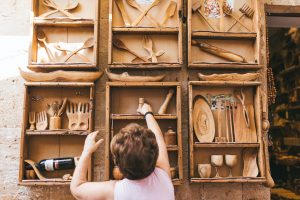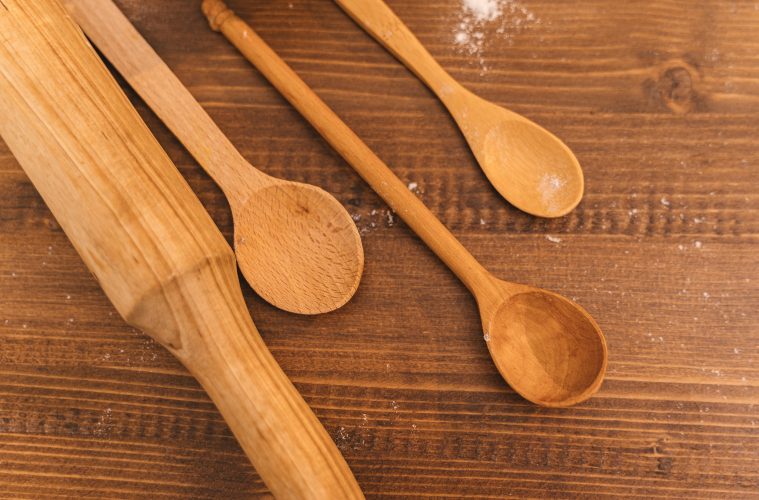Wooden spoons, cutting boards and other utensils are the workhorses in the kitchen. If well cared for, your wooden kitchen companions can last years.
Here are some tips on how to keep these wooden steeds in tip-top shape:
Hand wash away
Although it’s tempting to hide all dirty tools and dishes in the dishwasher, the long exposure to high water temperatures is very harsh on wood. This can cause your wooden tools to dry out and lead to cracks. We recommend first rinsing the tools with warm water and then washing them with mild soap using the scratchy side of your sponge.
The do’s of drying
Like using a towel after a hot bath or shower, your wooden utensils also need to be blotted with a dry kitchen towel before leaving them to air dry. It is better to let them dry standing, instead of laying down, to promote better airflow. This also prevents the wood from expanding and cracking.

Unsplash
Sayonara to stains and smells
Wooden utensils absorb smells from strong flavours such as garlic or oil. These odours or flavours can then also transfer to other foods upon the tools’ next use. Using wooden utensils while working with highly pigmented foods, such as tomatoes or berries, can also stain the wood. The best natural fighters against stains and smells are lemon juice and a paste made from baking soda and water.
To remove smells and stains using baking soda, create a paste using one tablespoon of baking soda and one teaspoon of water. Apply this mixture to your wooden tools and let it rest before rinsing with warm water.
You can also rub the wooden surface with the cut side of a halved lemon, or let your wooden tools soak in lemon juice to draw out odours and remove stains.

Pexels
Moisturise as needed
After long periods of use, your wooden utensils can dry out or lose their smoothness and colour. To restore its moisture, apply mineral oil or beeswax and let it absorb into the wood for about four to twelve hours. Rub off the excess oil or wax with a dishcloth or towel. If your wooden workers are still a bit sticky or damp after rubbing off the excess, leave them to dry for another few hours. We don’t recommend using food-based oil like vegetable or olive oil, as these types of oils can go rancid.
The fallen heroes
Apart from wooden utensils’ longevity, their antibacterial properties also make them heroes in the kitchen. Trees naturally fight bacteria, mould, and other infections, which means that wood contains cells that don’t allow any bacteria or mould to take hold.
Of course, your wooden utensils aren’t growing trees anymore, but the properties of the wood remain the same.
After your wooden utensils are made, they are sealed with natural oils that further prevent bacteria from surviving on their surface.
When these wooden tools start to split or crack, it is best to discard these fallen heroes. This is because food can get trapped in the cracks, providing a sweet spot for bacterial growth.
Article originally written and published by Jean-Marié Uys for Food&Home.
Feature image: Pexels

